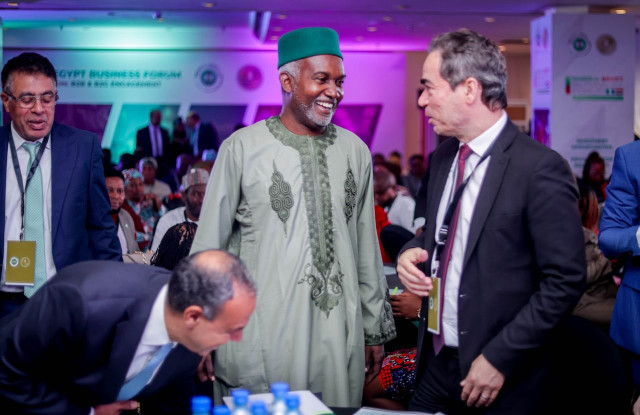Trade between Nigeria and Egypt has seen a significant increase of 68.45 percent over the past year.
The Egyptian Minister of Foreign Affairs, Badr Abdelatty, on Monday, announced that bilateral trade had risen markedly from about $187 million in 2023 to around $315 million in 2024.
This surge indicates a strengthening of economic relations between the two nations.
He stated, “Recent statistics show a notable growth in our trade, climbing from roughly $187 million in 2023 to approximately $315 million in 2024.”
Additionally, Nigeria's Minister of Foreign Affairs, Yusuf Tuggar, emphasized the need for both countries to address their unbalanced trade relations, as they work towards enhancing bilateral and multilateral cooperation in critical economic sectors.
Both officials made these remarks at the second Nigeria-Egypt Business Forum held in Abuja, which aimed to foster strategic partnerships to enhance mutual growth in areas such as politics, security, trade, international diplomacy, education, and cultural ties.
Tuggar characterized the relationship between the two nations as having evolved from “diplomatic brotherhood” into a comprehensive partnership, asserting that both countries have a responsibility to transform this alliance into tangible economic benefits.
“Since 1961, Nigeria and Egypt have shared a journey of mutual respect, unity, and common goals for regional stability and economic advancement. However, we must move past mere handshakes and headlines.
It is imperative that we establish trade routes, investment connections, and industrial collaborations that provide real value to our communities,” he stated.
He lamented the low trade volume despite their combined population exceeding 345 million, about a quarter of Africa's total population.
“In 2023, the total trade volume between our two countries was only $211.2 million, with Egypt's exports to Nigeria totaling $199 million and Nigeria's exports to Egypt at a mere $12.2 million, highlighting a significant imbalance. We need to improve,” he added.
The sizable trade gap presents a substantial opportunity for Nigerian producers, manufacturers, and exporters to penetrate a market that is conducive to Nigerian products, particularly under the African Continental Free Trade Area framework.
“The time has come for Nigerian leather, textiles, agro-products, pharmaceuticals, and ICT services to be introduced in Cairo, Alexandria, and beyond,” Tuggar asserted.
He reiterated that the Nigeria-Egypt Business Forum should not be viewed as a mere ceremonial meeting, but rather as “a strategic platform” to unleash the extensive underutilized economic potential of both nations.
“Let this forum mark a turning point. As two of Africa's most influential nations, we must not only excel politically, but also lead in trade, innovation, and the establishment of regional value chains,” he said.
Tuggar also highlighted the roles of Nigeria and Egypt within the Developing-8 Organization for Economic Cooperation (D-8), where they are the only African members. With a combined GDP exceeding $5 trillion and a population of 1.2 billion across Asia, Africa, and Europe, the bloc serves as a significant economic entity.
The D-8 aims to enhance its members' positions in the global economy, generate new trade opportunities, and improve living standards. “We cannot afford to be bystanders in such a vibrant group.
We must work towards achieving the D-8’s ambitious objective of increasing intra-bloc trade to $500 billion by 2030. This journey starts with us,” he emphasized.
He stated that both nations stand to benefit significantly from strategic collaboration in various sectors, including renewable energy, agriculture, solid minerals, water management, aviation, ICT, and manufacturing.
“Both Nigeria and Egypt are experiencing rapid industrialization and infrastructure growth. There is no reason why we cannot synergize our strengths for mutual benefit,” he remarked.
Tuggar also expressed support for private-sector actors, whom he regarded as “the true engines of integration.”
“Governments can only lay the groundwork. It is the entrepreneurs, investors, and innovators here today who will transform memoranda of understanding into actionable plans and dialogue into tangible development,” he concluded.




















